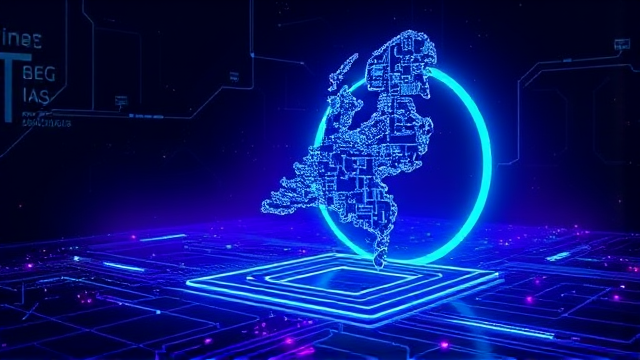Netherlands Seizes Control of Chinese Chip Firm
In a calculated maneuver resonating with the strategic foresight of a geopolitical chess grandmaster, the Netherlands has executed a decisive state intervention, seizing operational control of a pivotal Chinese-owned semiconductor firm—a move that, while framed domestically as a necessary bulwark to protect critical technology supply chains, sends shockwaves through the delicate apparatus of EU-China relations and fundamentally recalibrates the risk calculus for global tech interdependence. This isn't a spontaneous regulatory skirmish; it's the latest and most overt salvo in a protracted, shadow war over technological supremacy, a conflict where chips have become the new oil and control over their production is synonymous with economic and national security.The targeted entity, though not named in initial briefings, represents a critical node in the intricate global supply web for advanced chips, the tiny silicon brains powering everything from next-generation fighter jets to the artificial intelligence algorithms reshaping our world. For analysts like myself, who parse political risk for a living, this action reads as a textbook escalation, a scenario we've modeled with increasing probability since the United States first deployed its export controls hammer against Chinese tech giant Huawei, effectively demonstrating that in the 21st century, trade policy is warfare by other means.The Dutch justification, rooted in 'protecting supplies of technology,' is a politically palatable phrase masking a far starker reality: Europe, long caught between its transatlantic alliance with a hawkish Washington and its immense trade dependencies with Beijing, is finally being forced to choose sides. Consider the context: The Netherlands is home to ASML, the crown jewel of the European tech sector and the only company in the world capable of manufacturing the extreme ultraviolet (EUV) lithography machines required to print the most advanced semiconductors.China's relentless drive to achieve self-sufficiency in chipmaking, a central pillar of its 'Made in China 2025' industrial policy, has made ASML and the broader Dutch tech ecosystem a primary target for acquisition, investment, and alleged intellectual property transfer. This seizure, therefore, is not an isolated event but a defensive perimeter being drawn.It signals that The Hague, likely with strong, if quiet, backing from Brussels and Washington, is no longer willing to tolerate the perceived strategic vulnerability of having Chinese interests embedded so deeply within its critical infrastructure. The immediate consequences are stark.We can expect swift and severe economic retaliation from Beijing, likely in the form of targeted trade barriers against Dutch agricultural exports or investigations into European firms operating within China's borders, a well-honed playbook designed to create internal EU divisions by pitting member states with varying economic exposures against one another. For multinational corporations, this event is a five-alarm fire, a clear indicator that the era of relatively frictionless globalized tech supply chains is over, replaced by a brittle, bifurcated system where 'friend-shoring' becomes the dominant strategy.The long-term implications are even more profound. This move accelerates the fragmentation of the global internet and tech ecosystem into distinct spheres of influence—a U.S. -led bloc wary of Chinese technology and a Sino-centric bloc pushing its own standards and platforms.For investors, the risk premium on any cross-border tech investment has just skyrocketed; political risk can no longer be an afterthought in a DCF model. For policymakers in capitals from Tokyo to Berlin, the Dutch action provides a controversial but potent precedent for how to handle critical assets deemed vulnerable to foreign control.The central question now is whether this represents the high-water mark of European caution or merely the opening gambit in a broader, more confrontational decoupling. Will other EU nations with similar strategic tech assets, perhaps in Germany's automotive chip sector or France's AI startups, follow suit? Or will the economic pain of Chinese countermeasures foster a more conciliatory faction within the EU? The scenario planning must now account for a rapid escalation, where control over a single chip firm in the Netherlands becomes the catalyst for a wider economic cold war, redrawing the maps of alliance and influence for a generation. The chips, quite literally, are down.
Latest News
In a significant pivot of diplomatic focus, President Trump has declared his intention to shift the weight of American statecraft from the protracted Gaza
22 minutes ago0 comments
In a geopolitical maneuver with far-reaching implications for Southeast Asian stability, Malaysian Foreign Minister Mohamad Hasan confirmed Tuesday that U.S.
42 minutes ago0 comments
The political landscape of Madagascar has been jolted by a seismic and clandestine development, with President Andry Rajoelina reportedly fleeing the island
47 minutes ago0 comments
In a calculated geopolitical countermove that signals a significant escalation in the ongoing trade and technology cold war, Beijing has formally imposed
1 hour ago0 comments
In a move laden with profound historical symbolism, the mayors of Hiroshima and Nagasaki have formally extended an invitation to US President Donald Trump to
2 hours ago0 comments
In a decisive maneuver that echoes the strategic plays of a high-stakes geopolitical chess match, the Dutch government has moved to seize control of a
2 hours ago1 comments
The picturesque Malaysian tourist town of Kundasang, nestled in the shadow of Mount Kinabalu on the island of Borneo, has been thrust into an unwelcome
3 hours ago1 comments
In a decisive maneuver resonating with the strategic calculus of a geopolitical gambit, the Netherlands has seized operational control of a Chinese-owned
3 hours ago1 comments
It’s quiet here...Start the conversation by leaving the first comment.
